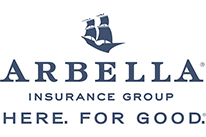Health is precious to all of us. Without good health, it is hard to experience everything life has to offer. Unfortunately, oftentimes we do not recognize its importance until something goes wrong and our health deteriorates. However, there is no need to wait until we lose it to truly start appreciating it. Regular care and fast access to good treatment are key to avoiding major health issues and prolonging our lives. Proper health insurance is part of that. It is better to choose good health insurance now than to regret not having one later.


To understand health insurance and figure out what you should get, you need to understand the different plans and systems. Most people’s insurances fall under one of the following four managed care arrangements:
PPO plans include a network of preferred providers, both doctors, and hospitals, that have a contract with the insurance provider or third-party administrator. People with a PPO plan pay a subscription fee to get access to the network and services at a lower cost. To see a doctor, patients do not need a referral from their primary care physician. Going to a doctor or hospital out-of-network is also covered by the insurance to some extent, but as one might guess, it costs significantly more. Still, if you have no other option but to visit an out-of-network provider, it is good to know your insurance will cover some of it.
EPO plans are similar to PPO in the sense that people need to visit in-network doctors and hospitals to get medical care at a reduced rate. Generally, you do not have access to a primary care doctor, but you can see a specialist without a referral. What sets the two plans apart is that EPO will not cover out-of-network services at all (unless it is an emergency) as suggested by the word “exclusive”. As a result, EPO tends to be more wallet-friendly than PPO as long as you do not require any out-of-network care.
HMO offers a local network of hospitals and doctors for you to choose from. An HMO network is usually restricted to a specific area. This plan requires you to have a primary care provider, who manages your care and gets referrals to see specialists. You are only covered for doctors and hospitals in the HMO network and will have to pay the full costs out-of-network (unless it is an emergency specified by the plan). The monthly premiums are typically lower but the deductibles are higher than with EPO or PPO. While you might have fewer hospitals and doctors to choose from, HMO can be more cost-efficient than other plans.
POS is a blend of HMO and PPO. It allows you to choose your healthcare providers and have coverage for both in-network and out-of-network services, but the latter is more costly. You will also have to get a primary care doctor who will be responsible for your care and needs to give you a referral if you want to see a specialist. The costs are usually lower, but there is a more limited number of providers.

Medicare is a federally funded insurance program for people over the age of 65, younger people with certain disabilities, and people with End-Stage Renal Disease.
The Original Medicare plan consists of Hospital Insurance (Part A) and Medical Insurance (Part B). However, Medicare does not provide comprehensive coverage, so it is often best to supplement it with another insurance plan.
Medicare Advantage (Part C) is an alternative to the government-funded Medicare Original. It is a Medicare-approved plan that covers all Medicare services but is instead offered by private-sector companies.
Medicare Prescription Drug Coverage (Part D) is an optional insurance plan specifically for prescription medication. Plans are purchased from insurance companies but must be approved by Medicare, which determines which drugs are covered under the plan.
Medicaid provides coverage for some low-income people, families, and children, pregnant women, the elderly, and people with disabilities in all states. Some states have Medicaid coverage for all people below a certain income level. Different states have different names for Medicaid (e.g., MassHealth in Massachusetts and Medi-Cal in California) and while they all follow federal guidelines and offer comprehensive coverage, the specifics of their coverage and costs may vary.
The Affordable Care Act, a law passed in 2010, declares that all U.S. citizens and permanent residents must carry some form of health insurance. The health insurance marketplace helps to enforce the mandate by giving individuals, families, and small businesses who do not have employer-sponsored plan access to health insurance that meets the 10 basic requirements or essential health benefits.
Many states offer their own marketplaces, but the federal government has an open exchange for people from states without one. The marketplaces organize exchanges, where private insurers compete against each other, and people in need of insurance, can compare plans and find the one most suitable to them. You can use a calculator to find out an estimate for the cost of a health insurance plan through the marketplace.
The main healthcare plans might not cover all your medical needs, so it is not a bad idea to add on additional insurance. The most common ones include:
Some people might actually need less insurance or a shorter plan – whether it is because they are temporarily between jobs, planning to soon move to another country, or visiting the U.S. for a short period. In that case, the best option might be short-term health insurance. It is normally cheaper than other medical insurance plans and provides coverage only for a set amount of time – from one month to three years.
When you purchase any kind of insurance, your aim is to maximize the benefits relative to the expenses. When it comes to health insurance, there are several things that can help you lower your health insurance costs.
Ensure your plan includes your preferred doctors and hospitals in the network. Otherwise, you will be spending a lot of money going out of network.
When you are choosing a new plan, make sure it covers any prescription medication you are using regularly. You can also buy a separate prescription drug plan to get discounts on medication.
It is tempting to just choose a plan with the lowest premiums. However, consider whether you will be able to pay the deductibles when you are going to require care. Think about the likelihood and frequency of needing medical care and make sure that deductibles are not preventing you from seeing a medical care professional when you are feeling unwell.
In most cases, they have exactly the same active ingredients as the brand-name medications and come at a lower price. Ask your doctor to prescribe you a generic drug or give you just the formula of the medication, so you can choose the most affordable medication at the pharmacy.
Employers often provide wellness programs that give their employees the opportunity to lower their insurance premiums or earn some gift cards. Wellness programs usually involve taking surveys about health or going through biometric health screenings.
As fitness trackers have become more popular and widespread, more insurance companies are looking into using them for risk assessment. If you give the insurance agency permission to track your data, you can earn rewards and discounts when you meet your activity goals.
If you have a domestic partner or you are married, it might be more cost-efficient to join your partner’s health plan. Check with them and their provider to see if that option is available. Additionally, you might want to use coordination of benefits if you are covered by two different health insurance plans (e.g., yours and your partner’s).
Brokers have a lot of knowledge about insurance and understand the differences between the plans. Since they do not work for any specific insurance companies, they are not biased toward an agency and instead, have your best interests in mind. Work with a reputable broker to find the best plan for you and your family.
First, consider your healthcare needs:
Econosurance can help you apply for a plan that matches your needs while sticking in your budget..
Have you already found the right healthcare plan for you and your family? Do you want to discuss other options with an experienced insurance broker? Email us and we will make sure that you have insurance that protects you and your loved ones when you most need it.




